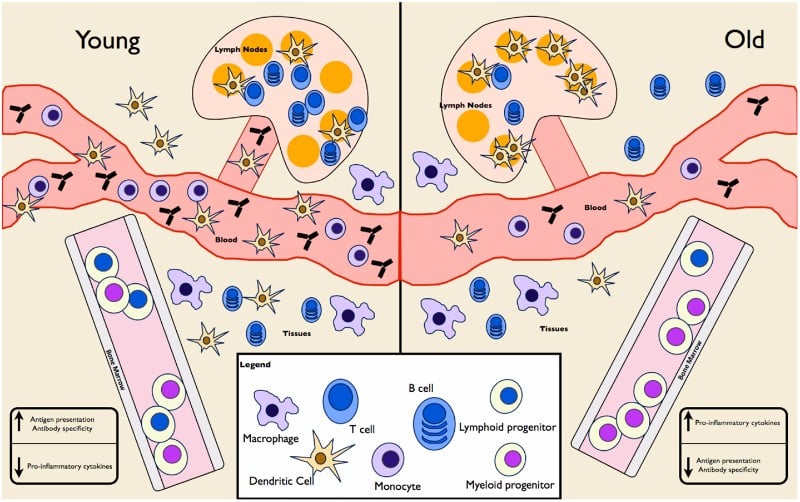PureTech will take on the development of two mTORC1 inhibitors from Novartis aimed at stopping the decline of the immune system associated with age.
Novartis is building up the portfolio of PureTech, a Boston-based healthcare company listed on the London stock market. Originally an investment firm, it now has put together a drug pipeline from its biotech portfolio. Its latest additions are two drugs to prevent and treat diseases related to immunosenescence, an age-related process that reduces the immune system’s functions.
PureTech will create a subsidiary, resTORbio, to carry out the development, starting with a Phase IIb trial for age-related immune system deterioration. The US company has allocated €14M ($15M) for the program, giving it a 58% stake that could rise to 67% in the future with an additional €9M ($10M) investment.
For its part, Novartis will get an undisclosed equity stake in the company plus milestone payments and royalties as the drug advances through development and commercialization. The big Swiss pharma has already run two Phase IIa studies in elderly patients with the two mTORC1 inhibitors.

Novartis already has an mTOR inhibitor in the market, Everolimus, used as an immunosuppressant for organ transplantation and certain forms of cancer. Preclinical research seemed to indicate that this drug could also extend the lifespan and boost the efficacy of vaccines, which led the company to start human trials.
However, despite the promising potential of the candidates, Novartis has decided to trust someone else with development and wait to see whether they’re successful in the long term.
The field of anti-aging, focused on delaying and preventing age-related conditions, is still young and so far it mostly attracts innovative biotech companies rather than traditional pharma. But as medicine advances and the human lifespan increases, I’m sure it will start gaining more and more recognition.
Images from Africa Studio /Shutterstock; Dorrington MG and Bowdish DME (2013) Front. Immunol. 4:171.





